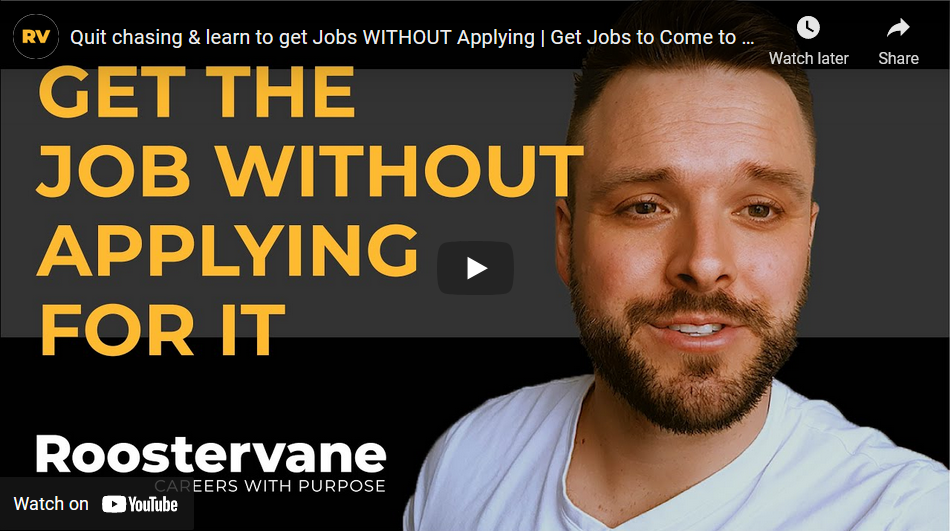Updated September 17, 2021
I was the first person in my family to go to university, and there was nobody to give me career advice. I did a lot of things wrong from the beginning.
I took out way too much debt. In my defense, my family didn’t know any better. We thought that student loans were how people did it. But I still did it.
My other huge mistake was ignoring that the end was coming. The end of my degree. The end of my funding. The end of academic jobs I could apply for. The end of all things.
I treated the end much like I treated every other deadline in life–I’d deal with it when I got to it. I stuck my head in the proverbial sand and pretended that it wasn’t coming.
It still came.
And I wish that I’d been better prepared. I know now that a well-planned exit from your degree can save you years of hardship and poverty. Being strategic can launch your career forward by years.
I did a couple of things right and a lot of things wrong.
So if you’re still studying, here are 7 things to do to set yourself up for success when the end comes… and trust me, it will.
This post may contain links to affiliate products, which–if you choose to purchase–pay us a commission at no extra cost to you. This helps to support our work. We only promote products we’ve used and love.
1. Travel
This one I did right! I spent most of my PhD hopping around Europe, which for a humanities student was a dream come true. I lived in Nice, Berlin, and Athens, and from the heights of the Alps to the sandy beaches of my favorite Greek islands, I explored as much as I could.
The approach wasn’t rocket science and—if you’re wondering—I’m not independently wealthy. My university offered lots of travel fellowships connected to my research to make it happen—in fact, I got thousands of extra dollars in funding I wouldn’t have got otherwise.
While “travel” might seem like weird career advice, I learned more traveling than in my PhD research itself: about myself, the world, cultures, languages, surviving.
And I knew that if I mixed my PhD with travel I wouldn’t regret it—and I don’t.
Travel makes you interesting to employers. It helps you stand out, shows that you’re curious and adventurous and that you’ve learned to think outside the box of your home culture.
As I write this we are in the middle of a pandemic and travel could be dangerous. Obviously, I’m encouraging you to do so if and when it’s safe.

2. Build a LinkedIn page
If you’re planning to have a career once you’re done your degree, my best career advice is that you should be on LinkedIn.
It’s a magical place of jobs and possibilities, and very few people use it to its full potential. I’ve had several opportunities come from LinkedIn, and there’s plenty more potential there.
Get on there and build yourself a profile. Make it relatable and easy to read, and start engaging with posts from companies, non-profits, or thought leaders you like. Share stuff. Write posts that are accessible to people outside of your field.
Or–if all that is overwhelming–just get on and put up some basic information. But get on it.
Check Out the Related Post
Killing It on LinkedIn for Academics
Start Building Your Non-Academic Network
3. Make your research relevant to something that matters to employers
I don’t care how abstract your research is, or, for that matter, how in-demand. You need to have a clear idea of how your work during the degree could map onto a real-life career path.
And you don’t need to wait until you’re done your degree to start doing this.
If you’re in the phase of designing, or even executing, a major research project, design it in a way that will make sense to employers.
For example, my PhD work was in ancient religion and trade. Unfortunately, no employer yet has asked about my in-depth knowledge of the Thracian goddess Bendis and her entry into Athens.
But I became an expert in diaspora theory and ideas around the economics of immigration. This made sense to one of my employers, the federal government, when I worked for the department of immigration.
The other way to do this is to make sure your project has an outcome that’s relevant to employers, as in, your research develops a skill that they need. This might mean you learn data collection and database skills to map an animal population, or you might take your degree in math and learn how to do financial modeling.
Make outputs or subject matter relevant.
4. Learn a real and complementary skill
This is related to the last point.
I studied humanities for all of my early academic career, reading English literature, working in historical archives, stumbling through Foucault, and trying to unscramble cursive Greek from a papyrus. During this time I learned how to think conceptually, challenge assumptions, empathize, and understand people’s motivations.
These are soft skills employers say they want. HOWEVER, most employers aren’t very creative about finding them—they gravitate towards tangible things they can plug into a box that makes sense to them.
So why not learn a skill or two that fits in one of these boxes? Build Websites; Code Stuff; Collect Data and Analyze it; Learn Software; Learn Digital Marketing; Get a UX Qualification; Learn an Adobe Product like InDesign—these skills will help you bridge the gap between your degree and the work you want to do. These are skills that—when combined with your masterful writing and research skills—are going to make you a huge asset to a company.
I love the website Skillshare for this, and I used it to teach myself SEO, Copywriting, and bookkeeping when I was transitioning.
Click here to try Skillshare for free!
5. Learn personal finance
One of the most useful things I learned on the side while I earned my PhD was finance–from economics to personal finance. I started by reading the book The Undercover Economist which I loved and doing an OpenYale course on finance with one of the greatest financial minds of the last century–Robert Schiller.
But I also learned personal finance. I learned how to–gulp–pay for those damned student loans I took out for a degree that had no application in the real world.
Millennials think they’re going to be rich—but studies show that they’re not on track for it.
And sure there are hard odds to face, like sky high home prices.
But I think that the biggest deficit in our knowledge is this: many of us never learned about money. In our parents’ world, they got jobs for life and a pension. They didn’t have to think about financial planning (although even they’d be better off if they would have).
No-one’s doing this for us. A lot of my generation needs to learn about how to control spending, how to pay down student debt if you have it, or avoid it altogether.
The career advice here is simple. Learn about money. It will be the best thing you’ve ever done. (Check out my four favorite personal finance books here!)
6. Work or volunteer on the side
When I moved to Canada’s capital city of Ottawa I started meeting people who started PhDs but never finished them.
The reason?
Ottawa universities are connected across politics and government. PhD students get into a network, inevitably find a job that pays well and is more exciting than their PhD, and eventually leave their program without completing. And I’ve never met anyone who regrets this. Something better came along.
Sure in the university there might be are TA or RA opportunities and abilities to teach a class if you’re a doctoral candidate—all good preparation for those academic jobs that don’t exist.
If you want to take your degree to the next level, look outside of academia early. Dip a toe in altac work (if you don’t know where to look start doing some networking–see my post on this here). Volunteer if you have the time and mental space for it. These connections will help you more than you can imagine.
NB If you’re a guest in a foreign country, there may be limitations around working in your host country.
7. Build your network
I’ll be honest with you, interviews and job offers come from networking. It’s not about getting special treatment, it’s that you don’t stand out in a pile of 100 resumes. It’s just the way the game works.
If someone says to the person hiring “hey I’ve got someone here who might work” — code for “you don’t have to sift through 100 resumes now”– what do you think that person’s going to do? What would you do?
Networking is not gross, and it’s not handing out business cards at a cocktail event and asking “what do you do?” Good networking is building social capital (anyone read Bourdieu?). This social capital lives in relationships between people that sort of have a friendship vibe, but are often a little more like extended work friendships.
People often were kind enough to take the time to talk to me and help me learn about options for outside of academia. When I could I made sure to help them if I was in the position to—or else I try to pay it forward. Everyone needs a hand now and then, and most people are happy to help if they’re able.
Try reaching out to people and introducing yourself. Tell them that you’re trying to figure out what you want to do with your life. You’ll be surprised at the response. Human beings are awesome!
Check Out the Related Post
Start Building Your Non-Academic Network
To Sum Up
Don’t wait until graduation to start thinking about a career, and don’t wait for the career center to do it for you (but do go and talk to the career center now!). If you’re in an advanced degree you’ve got a lot to offer. My career advice is to start getting ready for life after academia while you’re still in it, and your transition will be a lot less painful.
Read More:







